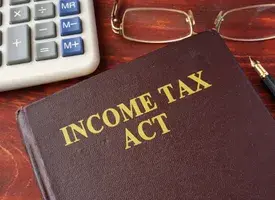Colombia, Peru, Ecuador, and Bolivia are member states of the Andean Community. Trademark oppositions in these countries are governed under Title VI, Chapter II of Decision No. 486 issued by the Commission of the Andean Community, which establishes the Common Industrial Property Regime.
A trademark is a sign that is registered to distinguish a product or service in commerce. There are other types of signs used in trade that can also be registered with the Andean Community States, such as logos, designations of origin, geographical indications, collective marks and certification or guarantee marks.
In order to legally protect a trademark or other sign used in commerce, it is necessary to register it with the respective IP Offices.
Trademark in Andean Community States may be designated by the following symbols:
- ® (for a registered trademark)
- ™ (for an unregistered trademark)
A trademark typically consists of a name, word, phrase, logo, symbol, design, image, or a combination of these elements. In addition to conventional trademarks, Andean Community States also allows the registration of non-traditional trademarks, which may include marks based on colour, smell, or sound.
A registered trademark grants the owner exclusive rights to use it in relation to the registered goods or services, or to authorize another party to use it in exchange for payment. Trademark protection helps prevent unfair competition, such as counterfeiting, by prohibiting others from using similar or identical marks to market inferior or unrelated products or services.
The owner of the registered trademark may initiate legal proceedings for trademark infringement to prevent unauthorized use of that trademark, and can license it to the third parties, sell it in return of sum, use it raise equity for business undertakings.
| Relevant office | Bolivia: National Intellectual Property Service (SENAPI) Peru: National Institute for the Defense of Competition and Intellectual Property (INDECOPI) Colombia: Superintendencia Industria y Comercio (SIC) Ecuador: Ecuadorian Institute of Intellectual Property (SENADI) |
| Filing principle | First to file |
| Nice classification | YES |
| Paris convention | YES |
| Madrid system | Yes – Colombia No – Bolivia, Ecuador, and Peru |
| Multi class system | YES |
| Documents required for filing a trade mark application | Power of attorney simply signed. Certified copy of the priority document if claimed |
| Prosecution process | Filing, examination, publication, registration, renewal |
| Registration term | 10 years from the date of application |
| Renewal term | 10 years |
Trademark searches in Andean Community States
A trademark search in Andean Community Statescan be conducted for both word and device marks. It is advisable to carry out a search prior to filing a trademark application to determine the availability of the mark and to identify any prior identical or similar trademarks on the register. This helps to avoid objections or oppositions during the registration process.
Along with trademark search, it is also advisable to do a comprehensive company search and domain search of the proposed trademark in Andean Community States.
Filing trademark applications in Andean Community States
A person may file multi-class or single class trademark application in Andean Community States.
Trademark application can be filed in the following categories:
- Ordinary Applications
- Convention application (claiming priority from a convention country)
Ordinary application in Andean Community States
Ordinary trademark applications filed in Andean Community States are applications without claiming any priority. Multi class trademark applications may also be filed in Andean Community States. However, the trademarks act also lays down provisions regarding the filing of priority applications, wherein priority of the mark can be claimed in the said mark filed in a convention country.
Priority trademark applications in Andean Community States /Convention trademark applications Andean Community States:
A priority trademark application may be filed in Andean Community States. A priority trademark application should be filed in Andean Community States within 6 months after the date on which the application was made in the convention country.
Paris convention
The Paris Convention for the Protection of Industrial Property, signed in Paris, France, on March 20, 1883, established a Union for the protection of industrial property. It offers national treatment to the applicant residing in the member country of the union, in other words. National treatment is a very important concept and is essential for successfully achieving the fundamental aim of the Paris Convention. The idea is to provide equal treatment to applications from member countries, in a given member country and not to differentiate between the nationals of member countries for the purpose of grant, and protection of industrial property. Priority application can be filed in Andean Community States within six months after the date on which the application was made in the Convention Countries.
Trademark classes for goods and services
Andean Community follows the nice classification of classes. Respective State’s Intellectual property office uses the nice classification of classes that groups together similar goods or services into 45 different classes. Classes 1 to 34 are assigned for the goods and classes 35 to 45 are assigned for the services. Each class contains well defined list of terms and cover all the goods and services.
Trademark Examination in Andean Community
Once the application is submitted for the registration, the national directorate of industrial property will examine the application whether it complies with all legal requirements required for the registration. The application will examined on the basis of the distinctiveness against prior trademarks.
Where during the examination period it is revealed that the application does not meet the formal requirements for the registration, the national directorate of Industrial property shall notify the applicant about the irregularity so that he can remedy or amend the application within a period a period of 30 days from the of notification.
If the applicant does not amend or remedy the irregularities in the application within the specified time, the application shall be rejected.
Trademark Opposition in Andean Community
Any interested person, within 30 days from the date of publication of the mark in the Official Bulletin, has the right to file to the Controller an opposition to the registration of the mark. Oppositions can also be filed by the owners of the trademark in other member states of the Andean community. A local application needs to be filed to show the legitimate interest.
Trademark registration in Andean Community
After the examination, opposition process is completed and the mark is accepted for registration, the mark will be registered for a period of 10 years from date of application and the registration certificate is issued.
Trademark Renewal in Andean Community
You can renew your trademark right by filing a request for renewal six (6) months before the trademark right expires.








